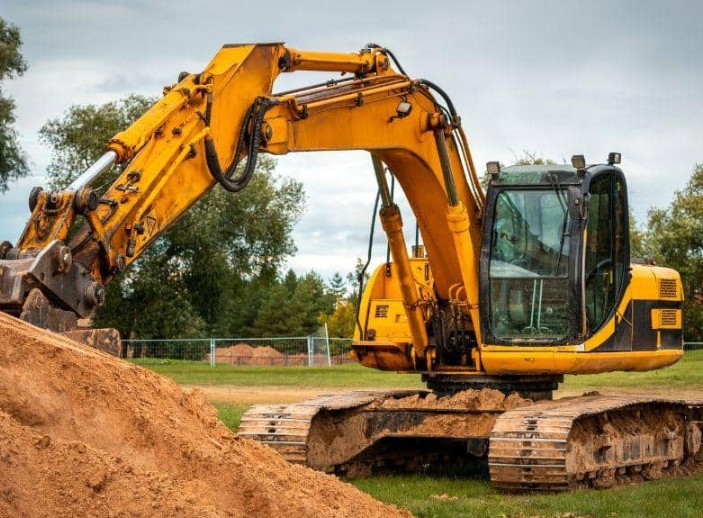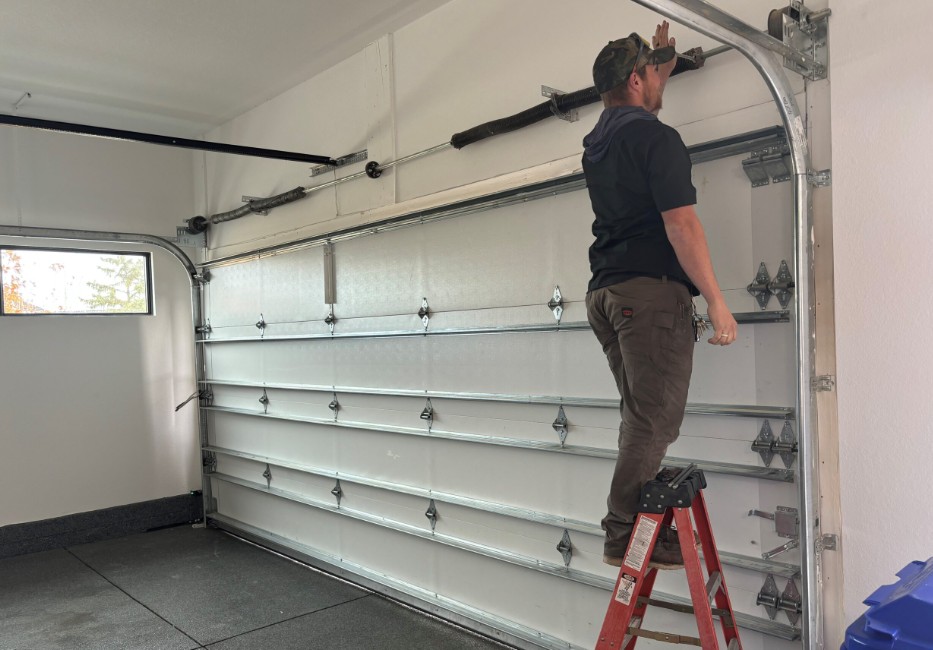How Colorado’s housing market cooled as interest rates rose

A month after interest rates inched up, area real estate agents who help people sell their houses or assist in buying one say that yes, the housing market slowed in the past month.
Houses for sale in June lingered a bit longer on the market than in May — by one day more in Colorado and Denver. Fewer homes sold in June, compared with May and a year ago June. But sellers keep putting more houses on the market, as if they feared buyers would disappear. (Spoiler: Buyers haven’t disappeared.)
That meant June looked something like this in Denver and Colorado:
Other county data is available from the Colorado Association of Realtors (right here), but we pulled out Denver and Colorado because what happens in Denver impacts the Front Range. That’s according to Patrick Muldoon, broker owner and president of Muldoon Associates in Colorado Springs. When Denver housing prices skyrocketed in the past few years, interest in Colorado Springs and Pueblo increased too. But now, a pullback in Denver, along with higher interest rates, inflation and economic nervousness (more on that below) are keeping local markets local with fewer out-of-the-area shoppers looking around.
“When Denver was picking up, they had escalation clauses and we hadn’t heard of those. And boy, they had these weird things called appraisal gaps and we hadn’t heard of that. Then the Springs and then Pueblo followed suit. Much of that reverses when the market starts to cool in Denver,” Muldoon said. “I feel like most of the buyers we’re working with locally now are actually local buyers because the Denver market is also slowing. We’re starting to see that into Pueblo. Those commuters at $5 a gallon can’t really justify a house price change.”
(Note: An escalation clause is when prospective buyers commit to raising their offer if the seller gets a higher bid from someone else. An appraisal gap is when a home’s appraised value is lower than the purchase price, requiring buyers to come up with the cash to cover the difference.)
That could be good news for buyers who can afford to spend a little more on a monthly mortgage due to higher interest rates, he added.
“If you’re in Denver, you might have some inventory free up and be able to stay in Denver. If you’re in Colorado Springs, you might actually find houses closer to work,” he said. “You don’t have to move to Pueblo.”

But what about my home appreciation?
In a down market, homeowners are asking how much will this impact appreciation? That’s probably the wrong question because if you already own, even if you purchased in the past year, your home’s valuation has likely gone up.
Prices have always rebounded, said Matt Leprino, head of real estate brokerage Remingo in Denver. In June, median sale prices in Denver were up 12.8{73375d9cc0eb62eadf703eace8c5332f876cb0fdecf5a1aaee3be06b81bdcf82} from last June. While that’s less than the prior year’s 29{73375d9cc0eb62eadf703eace8c5332f876cb0fdecf5a1aaee3be06b81bdcf82} appreciation experienced in June 2021, a house in Denver bought last year has still appreciated by double digits.

“The analogy that really conveys to us what’s happening is just that we’ve hit the summit,” Leprino said. “We’ve climbed to the top of the mountain and we’re hanging out there. It’s not as though we’ve started a freefall back in the other direction. And just because you’ve reached the top of a mountain doesn’t mean you need to go back down. The historical perspective is that prices always go up, even when they decline in the way they did in ’09, ’10, ’11, ’12 and ’13. They very quickly rebounded back to the levels they would have been had the Great Recession never happened.”
Here’s how much housing prices recovered during the down times, according to the S&P/Case-Shiller U.S. National Home Price Index (and shared by the Federal Reserve Bank of St. Louis). The shaded bars show U.S. recessions and the blue line is home prices. It took about 10 years for homeowners who purchased at the 2006 peak to recover that value.

Leprino projects that a single-family home in Denver could reach an average sales price of $1 million someday. That’s what the trajectory of housing price growth showed earlier this year. That changed after the Federal Reserve upped the interest rates a few times, including by a three-quarter point last month.
While houses in Denver are sitting longer on the market — there was 1.4 months of inventory in June, compared with 0.7 of a month a year ago — “we’d have to get closer to the multiples of months before we switch from being a seller’s market to a buyer’s market,” Leprino said. “As long as that’s the case and inventory is still that low, I don’t see any possibility of prices decreasing on any type of large scale.”
Housing sale prices did not fall in June, at least compared to a year ago. In El Paso County, home to Colorado Springs, last month’s median and average sales prices are still more than 10{73375d9cc0eb62eadf703eace8c5332f876cb0fdecf5a1aaee3be06b81bdcf82} higher than they were in June 2021. Pueblo’s median and average sales prices are still up 9{73375d9cc0eb62eadf703eace8c5332f876cb0fdecf5a1aaee3be06b81bdcf82} and 7.7{73375d9cc0eb62eadf703eace8c5332f876cb0fdecf5a1aaee3be06b81bdcf82} respectively from a year ago June. But they did fall or were flat between May and June.
David Anderson, with Re/Max of Pueblo, said that in the past two to three years, his region has seen a 15{73375d9cc0eb62eadf703eace8c5332f876cb0fdecf5a1aaee3be06b81bdcf82} to 20{73375d9cc0eb62eadf703eace8c5332f876cb0fdecf5a1aaee3be06b81bdcf82} housing appreciation, but this year it’ll probably be 5{73375d9cc0eb62eadf703eace8c5332f876cb0fdecf5a1aaee3be06b81bdcf82} to 6{73375d9cc0eb62eadf703eace8c5332f876cb0fdecf5a1aaee3be06b81bdcf82}.
“Will housing prices keep going up? Yes, they will but at a slower rate. Interest rates do have something to do with it,” Anderson said. “People get panicked about interest rates. But this is the time to buy a house because they’ll be cheaper now than later.”
Inventory has tripled in the past month or so, he added. But that means it went to 170 homes for sale in Pueblo West from 60 to 70. He still feels like there’s not enough housing available though, and “it’s going to be that way for a long time.”
Here’s a more complete chart for different parts of the state:
Muldoon, from Colorado Springs, said it’s actually a more relaxing time to buy a house since you’re not dealing with bidding wars, especially if you plan to stay in the home for five years or so, because home valuations have always gone up over time. Fear of missing out, or FOMO, may have moved to sellers.
“If you compare it to five years ago, yeah, we’re better,” he said. “But I think we’re in a shift, for sure. … Our days on market are increasing in the Colorado Springs area. Inventory is increasing weekly in the Colorado Springs and Front Range area. You’re not getting the amount of offers you were. You’re not seeing the highest and best. … It is like buyer FOMO has left the building and now you almost have a little sense of seller FOMO … where they’re like, ‘Oh no, we’ve missed the top. How are we going to make our house sell?’”
Related:
→ What’s up with Western Slope housing? Sun reporter Jason Blevins wrote in The Outsider newsletter Thursday that the red-hot mountain real estate market has started to cool. Find the story on the Sun’s site next week, but if you’re a premium subscriber, you could have read it already. >> Subscribe to The Outsider
U.S. catches up with Colorado’s inflation rate — as state’s drops
This week, officials announced that America hit a 9.1{73375d9cc0eb62eadf703eace8c5332f876cb0fdecf5a1aaee3be06b81bdcf82} inflation rate in June for consumer products. That means the cost of food, gas, housing and everything consumers buy, on average, is 9.1{73375d9cc0eb62eadf703eace8c5332f876cb0fdecf5a1aaee3be06b81bdcf82} more expensive than June 2021. The major culprit? Gasoline. The gasoline index was up 59.9{73375d9cc0eb62eadf703eace8c5332f876cb0fdecf5a1aaee3be06b81bdcf82} in the past 12 months.
Meanwhile, the Denver area, which hit 9.1{73375d9cc0eb62eadf703eace8c5332f876cb0fdecf5a1aaee3be06b81bdcf82} in March, actually fell to 8.3{73375d9cc0eb62eadf703eace8c5332f876cb0fdecf5a1aaee3be06b81bdcf82} in May, according to the latest data from the U.S. Bureau of Labor Statistics. While food prices rose 2.8{73375d9cc0eb62eadf703eace8c5332f876cb0fdecf5a1aaee3be06b81bdcf82} in the two months, blame energy for the higher inflation rate. Between May 2021 and 2022, energy prices jumped 24.7{73375d9cc0eb62eadf703eace8c5332f876cb0fdecf5a1aaee3be06b81bdcf82}, with even a higher increase of 33.7{73375d9cc0eb62eadf703eace8c5332f876cb0fdecf5a1aaee3be06b81bdcf82} for gasoline.
Inflation in the Rocky Mountain region is still high, though, and economists with the Denver branch of Federal Reserve Bank of Kansas City found that more households are having difficulties affording their usual expenses because of higher food and energy prices.
“Consumers have begun to shift their spending habits in recent months by pulling back on purchases of large-ticket items or switching to lower-cost options when available. So far, most households have been able (to) meet their debt obligations. But the slight pickup in past-due payments for credit card balances and auto loans will be crucial to monitor over coming months,” according to the report.
Colorado’s household debt grew faster than neighbors in New Mexico and Wyoming, at 10{73375d9cc0eb62eadf703eace8c5332f876cb0fdecf5a1aaee3be06b81bdcf82} compared with 4{73375d9cc0eb62eadf703eace8c5332f876cb0fdecf5a1aaee3be06b81bdcf82} in the other states. Regardless, demand for housing continued and thanks to low interest rates in the past two years, mortgage debt was a large contributor.

→ Colorado’s gas prices still higher than U.S. According to AAA’s gas-price tracker, the state’s average fell 6 cents in a week and ended at $4.817 on Friday. That’s 24 cents higher than the U.S. average for a gallon of regular gas. AAA predicts prices will continue to fall as demand declines. >> AAA gas tracker
Reader survey on inflation
As of July 15, about 120 people have taken the What’s Working inflation poll asking “Are you doing better or worse?” This has been running for several weeks and the longer it goes, the more people pick “worse.”
Most chose to explain their economic situation further:
Theresa Springer from Hartsel said she’s doing worse and on top of inflation, has costly health issues. She’s cut way back on what she’s buying at the grocery store. She’s making her own bread, eating lettuce and vegetables. “Dairy products take up the bulk of our grocery funds,” she wrote. “One vehicle breakdown will put us under. I’m going to have to tap my 401(k). There is no way to get that back.”
Many are on fixed incomes so when prices go up, something else has got to give. Wendy Hanophy and her husband, who live in Aurora, are retired. “So, we are not going out much at all, and not eating much meat and so on,” she said.
One person stopped going to concerts and canceled a trip back east. A few said they stopped seeking medical care. Another mentioned they would be in trouble “without the generosity of others.” Most who said they did get a pay raise or income boost credited a new job that paid more or offered cost-of-living increases, which haven’t kept up with inflation.
And while not everyone feels like they’re doing worse than a year, “doing better” sometimes means it could be much worse.
“My partner had to quit a job he liked to take a job that paid more but that he didn’t like,” wrote Vicki Knoer from Boulder.
The couple’s discretionary income increased, but the trade resulted in a “decrease in our free time and mental health because the job has much longer hours and additional commuting time,” she said. “We no longer have time to do things like household upkeep, so we’ve been forced to increase our spending on things like premade meals. The additional commuting time and lack of work from home for the new job has also significantly increased how much we spend on gas.”
Marvin Gatch from Denver offers a tip: Check the grocery ads. He shops for what’s on sale and “my receipt savings almost always are above 50{73375d9cc0eb62eadf703eace8c5332f876cb0fdecf5a1aaee3be06b81bdcf82}.”
An 8-pack of sparkling water for $1.50. A can of tuna for $1. A $3 gallon of milk. Those were some of the items that filled his cart last month.
“No eggs on sale this week, so I won’t buy any,” he continued. “Same with other staples — wait until they are on sale. Use my King Soopers and Safeway membership cards for gas savings and/or free products. Use credit cards which give me 3 or 5 points on grocery purchases. And my King Soopers on Hampden and Monaco have a huge mark-down section where I bought a loaf of whole wheat bread this week for less than a buck.”
Here’s the survey again: cosun.co/ww-inflation. We’ll use it to inform our reporting. Feel free to share your inflation watch items! And thanks to all who participated.
10-12 week wait for unemployment pay
It’s now taking 10 to 12 weeks to get a new unemployment claim processed if you’ve lost your job in Colorado, according to the Colorado Department of Labor and Employment. (A reader who asked not to be named said she’s filed April 1 and is still waiting.)
Philip Spesshardt, CDLE’s division director of unemployment insurance, said claims aren’t rising but the department is backed up by pandemic claims that are “now being adjudicated” and “resulting in extended processing times.” In other words, the department is going through older claims to make sure they were legitimate.
Before the pandemic, processing a new claim took about four to six weeks. At the height of the pandemic, executive orders forced the agency to have a one- to two-week turnaround.
“We understand the difficulties claimants may experience during processing time and continue to have a goal of being able to process unemployment claims within three to four weeks of the initial claim filing in the future,” Spesshardt said in an email.
According to the U.S. Department of Labor, the number of new unemployment claims in Colorado was 2,289 for the week ending July 2, or up about 215. That’s about the same number as a year ago. Continued claims were about the same as the prior week, at 16,566. Weekly continued claims have been declining all year.
Need help? Call 2-1-1 or go to 211colorado.org. The service is run by the United Way and other nonprofits and connects struggling Coloradans to resources like housing, food and health services.
Other working bits
→ New vehicle sales slump in Colorado. That’s according to data from the Colorado Automobile Dealers Association. Its second-quarter outlook showed that sales fell 11.3{73375d9cc0eb62eadf703eace8c5332f876cb0fdecf5a1aaee3be06b81bdcf82} in the first six months this year compared with the same period last year. The organization blames exhausted inventories at dealerships plus price increases, higher interest rates and higher gas prices. >> Report
→ Cybersecurity apprentices get hired. In an earlier Sun story about the cybersecurity industry investing in apprenticeship programs, six women from the ActivateWork apprenticeship were just hired as quality-assurance engineers at Trimble, which has an office in Westminster. The organization, which works with CompTIA on tech apprenticeships, also announced a partnership with Ping Identity. >> Learn more
→ New funding for BiPOC/Latino entrepreneurs. There’s a new venture in town called the New Community Transformation Fund that is looking not just for entrepreneurs of color but founders who live or are willing to move to Denver to grow their company. Thanks to grants from The Colorado Health Foundation, The Colorado Trust and Bank of America, NCTF-Denver launched with $50 million and aims to help founders who traditionally are left out of venture investments. >> Details
Sun stories you may have missed:
→ How much does that job pay? Only three employers have been fined for violating Colorado’s new wage transparency law. But there’s still plenty of confusion. Not specifying a high or low wage is a violation. >> READ
→Colorado travelers spent $21.9 billion last year. That’s a nice chunk of change for the state’s economy but is down about $2.3 billion from 2019, Jason Blevins reported. >> READ
→ Denver’s Meow Wolf may be unionizing. More than half of the workers, declaring “the age of the starving artist is over” at the artist collective’s Convergence Station, support the move, Marvis Gutierrez reported. >> READ
On my week off, I traveled to the world of $6+ gallon gas (a trip planned before gas went above $4). It’s good to be back in Colorado. What’s new in your neighborhood? Share your questions and comments at cosun.co/heyww. See you next week when I’ll be rejoined by Brammhi Balarajan and Marvis Gutierrez. ~ tamara









